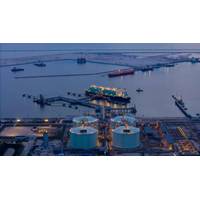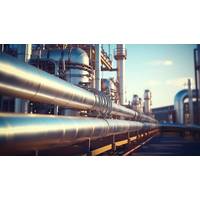Poland Working on Deal to Import US LNG to Support Ukraine, Slovakia

Poland is working on a deal to import liquefied natural gas (LNG) from the U.S. to supply Ukraine and Slovakia, an agreement that would further tighten the European Union’s ties to American energy, according to two sources familiar with the negotiations.Officials expect to announce a joint declaration to boost imports after a meeting of the parties at a transatlantic energy conference in Athens later this week, one of the sources said."After that, discussions would follow on terms for supplies to Slovakia," one of the sources told Reuters.
Russian Oil Supplies to Hungary and Slovakia Halted After Ukraine Attack

Russian oil supplies to Hungary and Slovakia could be suspended for at least five days after a Ukrainian strike on a facility in Russia, Hungarian and Slovakian officials said on Friday, in a widening of the fallout of Russia's war in Ukraine.Russia and Ukraine have stepped up attacks on each other's energy infrastructure, hitting Ukrainian domestic heating supplies, Russia's Druzhba pipeline and other facilities, over the past few weeks as U.S. President Donald Trump has pushed for a deal to end the conflict.The European Union reduced…